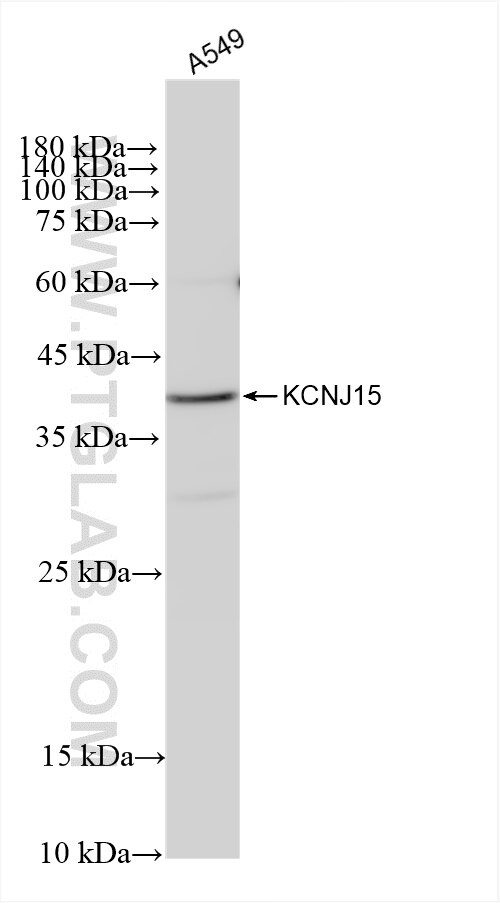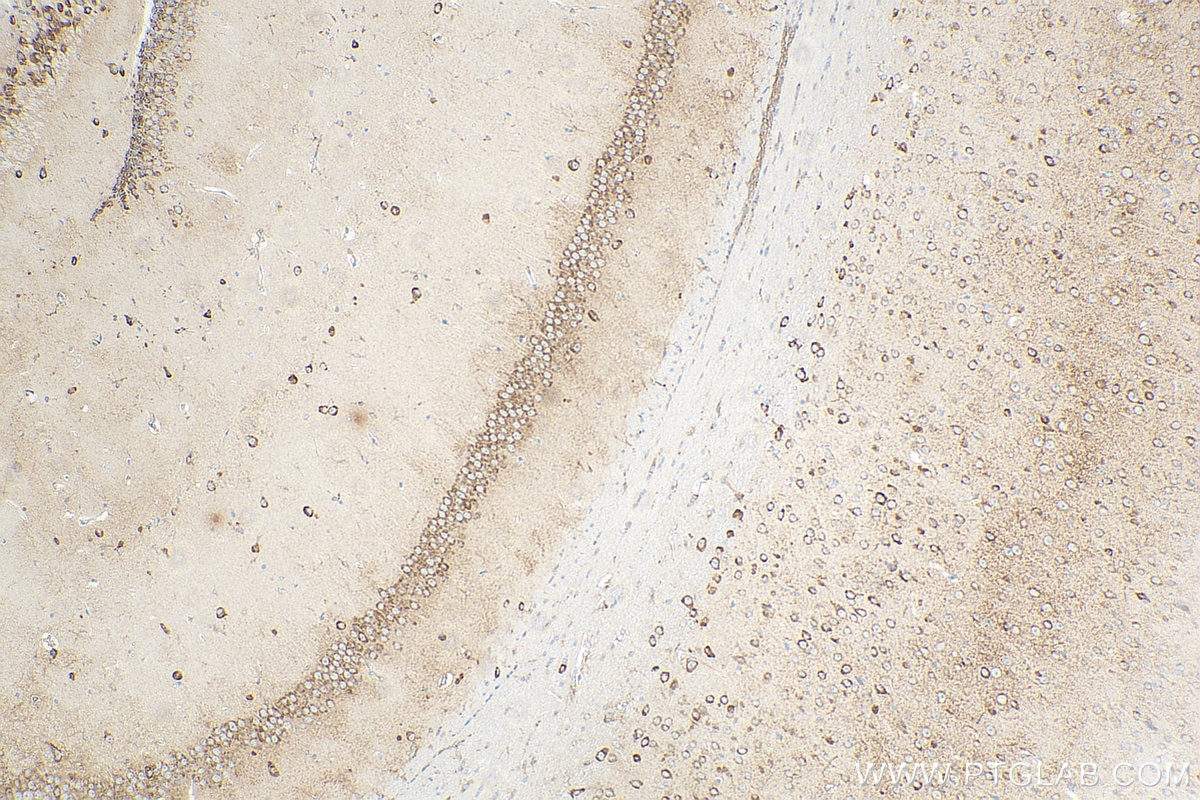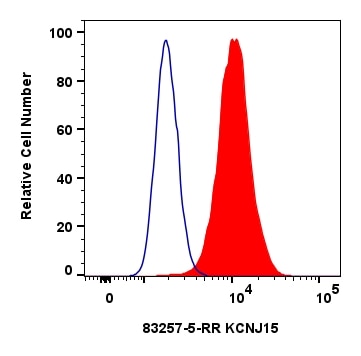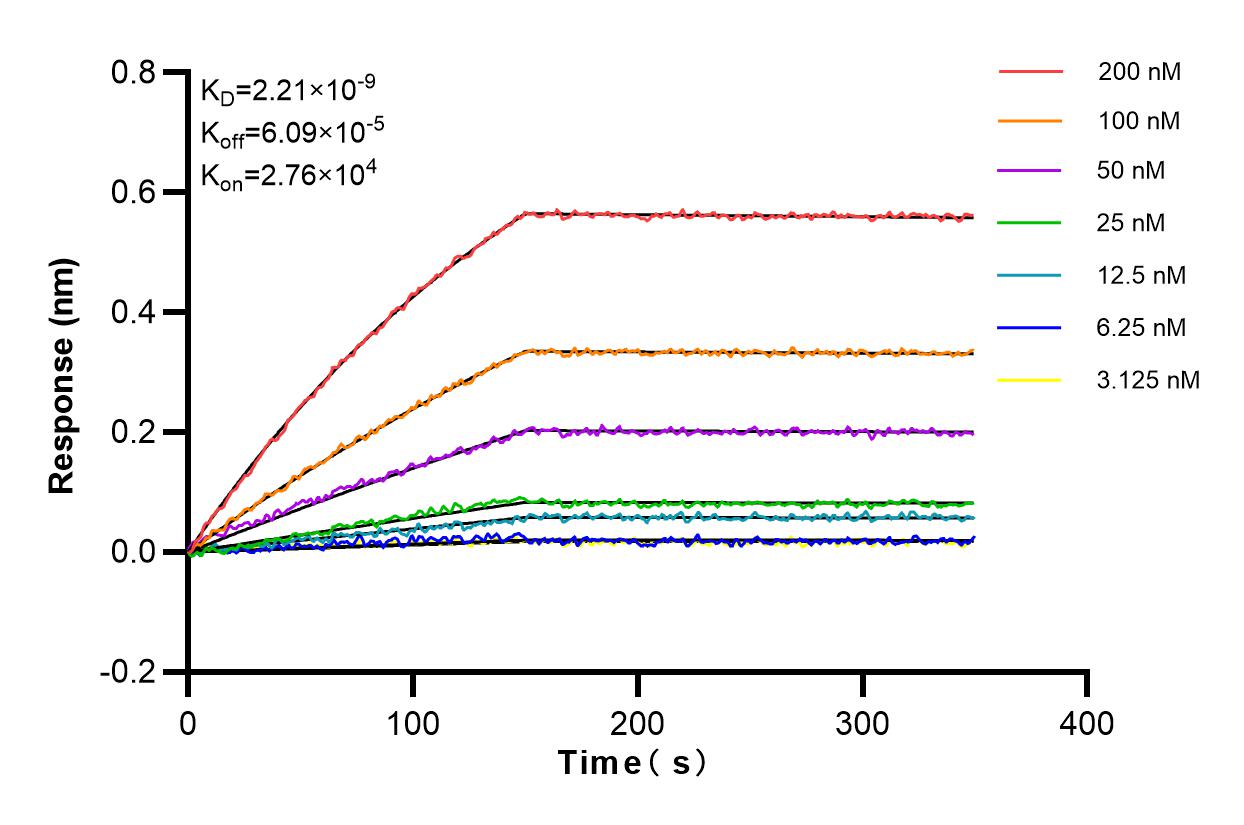Validation Data Gallery
Tested Applications
| Positive WB detected in | A549 cells |
| Positive IHC detected in | mouse brain tissue Note: suggested antigen retrieval with TE buffer pH 9.0; (*) Alternatively, antigen retrieval may be performed with citrate buffer pH 6.0 |
| Positive FC (Intra) detected in | HepG2 cells |
Recommended dilution
| Application | Dilution |
|---|---|
| Western Blot (WB) | WB : 1:500-1:2000 |
| Immunohistochemistry (IHC) | IHC : 1:50-1:500 |
| Flow Cytometry (FC) (INTRA) | FC (INTRA) : 0.25 ug per 10^6 cells in a 100 µl suspension |
| It is recommended that this reagent should be titrated in each testing system to obtain optimal results. | |
| Sample-dependent, Check data in validation data gallery. | |
Product Information
83257-5-RR targets KCNJ15 in WB, IHC, ELISA applications and shows reactivity with human samples.
| Tested Reactivity | human |
| Host / Isotype | Rabbit / IgG |
| Class | Recombinant |
| Type | Antibody |
| Immunogen | KCNJ15 fusion protein Ag34655 相同性解析による交差性が予測される生物種 |
| Full Name | potassium inwardly-rectifying channel, subfamily J, member 15 |
| Calculated molecular weight | 375 aa, 43 kDa |
| Observed molecular weight | 43 kDa |
| GenBank accession number | BC013327 |
| Gene Symbol | KCNJ15 |
| Gene ID (NCBI) | 3772 |
| RRID | AB_3670928 |
| Conjugate | Unconjugated |
| Form | Liquid |
| Purification Method | Protein A purfication |
| UNIPROT ID | Q99712 |
| Storage Buffer | PBS with 0.02% sodium azide and 50% glycerol{{ptg:BufferTemp}}7.3 |
| Storage Conditions | Store at -20°C. Stable for one year after shipment. Aliquoting is unnecessary for -20oC storage. |
Background Information
KCNJ15, also named as KIR1.3, KIR4.2, and IRKK, is a multi-pass membrane protein belonging to the inwardly-rectifying potassium channel (KIR) family. KIR channels perform functions as diverse as the regulation of resting membrane potential, maintenance of potassium ions homeostasis, control of heart rate and hormone secretion. Cloned from human kidney, the KCNJ15 gene is localized on chromosome 21 in the Down syndrome chromosome region 1 (DCR1) and has been identified as a type 2 diabetes-associated risk gene. The gene is most readily expressed in the pancreas and kidney and less in the lung. (PMID: 8995301; 9299242; 20085713)
Protocols
| Product Specific Protocols | |
|---|---|
| WB protocol for KCNJ15 antibody 83257-5-RR | Download protocol |
| IHC protocol for KCNJ15 antibody 83257-5-RR | Download protocol |
| Standard Protocols | |
|---|---|
| Click here to view our Standard Protocols |



